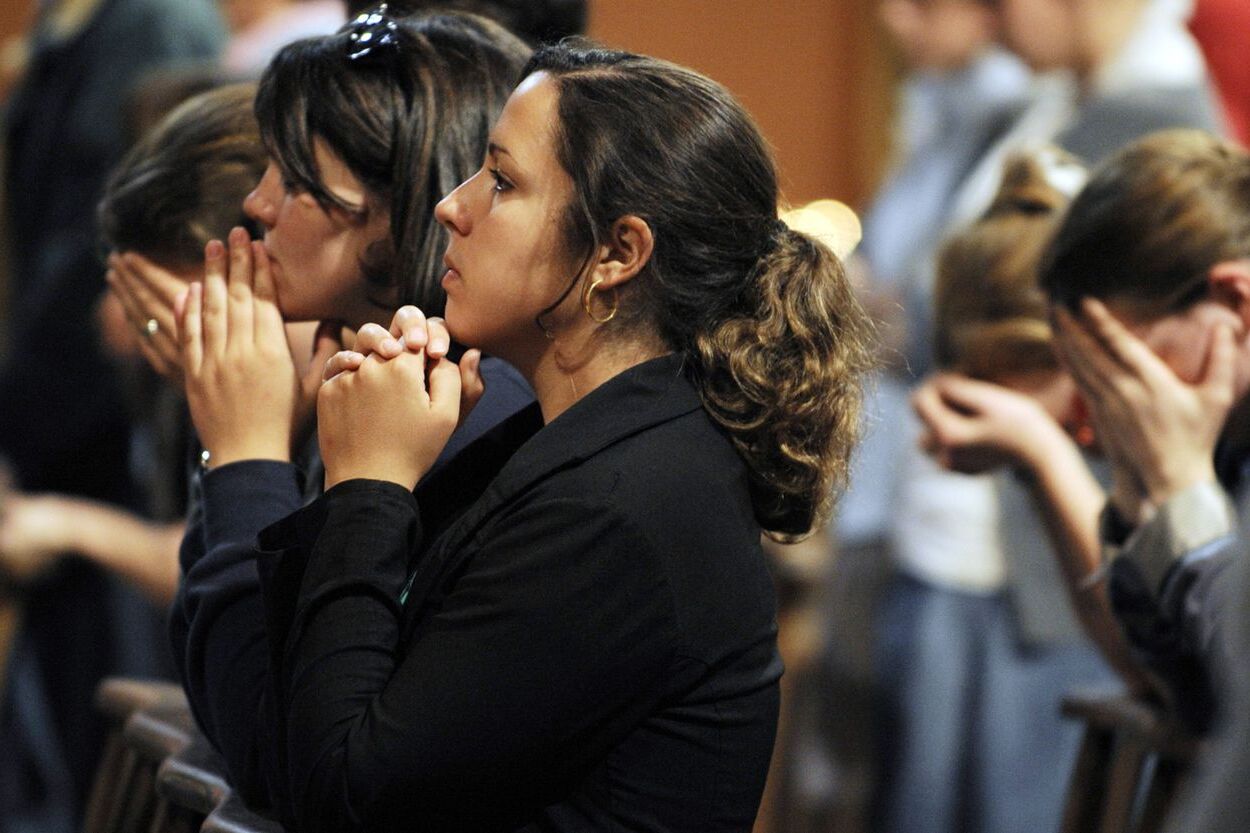
Lay apostolate refers to the involvement of laypeople in the mission of the Church. Unlike clergy, laypeople are not ordained but still play a crucial role in spreading faith and performing charitable works. Lay apostolate activities can range from teaching religious education to organizing community service projects. These efforts help bridge the gap between the Church and the broader community, making faith more accessible and relatable. Laypeople bring unique skills and perspectives, enriching the Church's mission. Lay apostolate empowers ordinary individuals to contribute meaningfully to their faith communities, fostering a sense of belonging and purpose.
What is Lay Apostolate?
Lay apostolate refers to the involvement of laypeople in the mission of the Church. These individuals, not ordained as clergy, play a crucial role in spreading the faith and serving the community. Here are some fascinating facts about lay apostolate:
-
The term "lay apostolate" comes from the Greek word "apostolos," meaning "one who is sent." Laypeople are sent to live out their faith in everyday life.
-
Lay apostolate activities can include teaching, charity work, and evangelization. These roles help bridge the gap between the Church and the secular world.
-
The Second Vatican Council emphasized the importance of lay apostolate. It encouraged laypeople to take an active role in the Church's mission.
Historical Background of Lay Apostolate
Understanding the history of lay apostolate provides context for its current role and significance. Here are some historical facts:
-
In the early Church, laypeople played a significant role in spreading Christianity. They often hosted gatherings in their homes.
-
During the Middle Ages, lay apostolate activities were limited due to the Church's hierarchical structure. However, laypeople still contributed through guilds and confraternities.
-
The 19th century saw a revival of lay apostolate with the rise of Catholic Action. This movement encouraged laypeople to engage in social and political issues.
Lay Apostolate in Modern Times
The role of lay apostolate has evolved, adapting to contemporary challenges and opportunities. Here are some modern facts:
-
Today, lay apostolate includes a wide range of activities, from social justice initiatives to digital evangelization.
-
Laypeople often lead parish councils and committees, helping to shape the direction of their local churches.
-
Many lay apostolate organizations focus on specific issues, such as pro-life advocacy or environmental stewardship.
Notable Lay Apostolate Figures
Certain individuals have made significant contributions to the lay apostolate. Here are some notable figures:
-
Dorothy Day, co-founder of the Catholic Worker Movement, is a prominent example of lay apostolate in action. Her work combined social activism with deep faith.
-
Blessed Pier Giorgio Frassati, known for his charity work and devotion, is another inspiring figure in lay apostolate.
-
Chiara Lubich, founder of the Focolare Movement, promoted unity and love through her lay apostolate efforts.
Impact of Lay Apostolate on Society
Lay apostolate has a profound impact on both the Church and broader society. Here are some impactful facts:
-
Lay apostolate initiatives often address social issues, such as poverty and inequality, making a tangible difference in communities.
-
Laypeople bring diverse perspectives to the Church, enriching its mission and outreach.
-
Lay apostolate fosters a sense of responsibility and empowerment among laypeople, encouraging them to live out their faith actively.
Challenges Faced by Lay Apostolate
Despite its importance, lay apostolate faces several challenges. Here are some key challenges:
-
Balancing lay apostolate activities with personal and professional responsibilities can be difficult for many laypeople.
-
Lay apostolate efforts sometimes face resistance within the Church, particularly from those who prefer a more traditional hierarchical structure.
-
Secularization and cultural shifts can make it challenging for lay apostolate initiatives to gain traction and support.
The Future of Lay Apostolate
Looking ahead, lay apostolate will continue to play a vital role in the Church's mission. Here are some future-oriented facts:
-
Technological advancements offer new opportunities for lay apostolate, such as online evangelization and virtual communities.
-
The growing emphasis on social justice within the Church aligns well with lay apostolate efforts, providing a strong foundation for future initiatives.
Final Thoughts on Lay Apostolate
Lay apostolate plays a crucial role in the Church's mission. These dedicated individuals bring their faith into everyday life, making a significant impact on their communities. By participating in various ministries, laypeople support the clergy and help spread the Gospel. Their involvement ranges from teaching religious education to serving the needy. This active participation not only strengthens their faith but also fosters a sense of community. Lay apostolate reminds us that everyone has a part to play in the Church's mission. Whether through small acts of kindness or larger initiatives, laypeople contribute to a more vibrant and inclusive Church. Embracing this role can lead to personal growth and a deeper connection with one's faith. So, next time you see a layperson serving, remember the vital role they play in enriching the Church and the world around them.
Was this page helpful?
Our commitment to delivering trustworthy and engaging content is at the heart of what we do. Each fact on our site is contributed by real users like you, bringing a wealth of diverse insights and information. To ensure the highest standards of accuracy and reliability, our dedicated editors meticulously review each submission. This process guarantees that the facts we share are not only fascinating but also credible. Trust in our commitment to quality and authenticity as you explore and learn with us.


